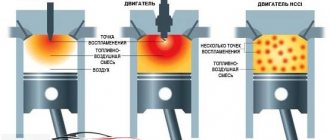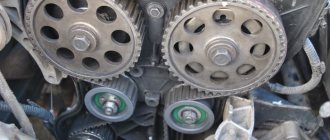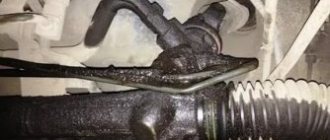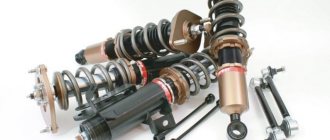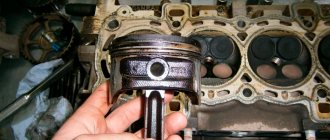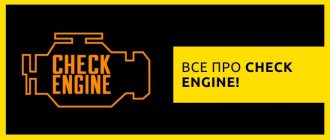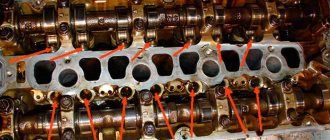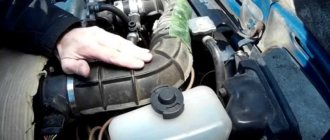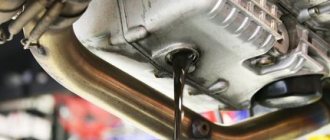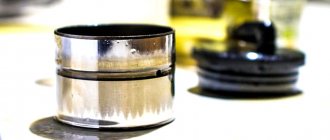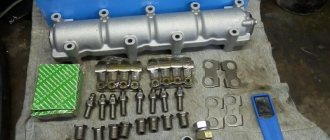As you all know very well, nothing can work constantly. No matter how sad it may sound, there will come a time when you will need to take your vehicle to a service station to diagnose all kinds of faults. There are very complex breakdowns that cannot be repaired with your own hands. But there are also problems that you can fix in your garage yourself. For example, the knocking of valves is the middle. Sometimes you can fix the problem yourself, but sometimes you can’t fix it without the help of a specialist.
How can you determine if the valves are knocking?
For new motorists, at first it will be very difficult to understand why the noise occurs. Third-party sounds are formed in such cases if the following breaks down:
1. Belt
2. Bearing
3. Crankshaft
4. Valves
The valves produce a very clear, perceptible sound, as if tapping metal near the gas distribution mechanism (timing mechanism). One of the features is the consistency of the knock, both at low power and at high speeds. Of course, for a driver without skills, relying only on hearing, it is actually not possible to determine valve failure. You can do the diagnostics yourself:
1. You need to open the hood, then the hole with the plug for filling the oil. Leave your vehicle running and listen carefully. If it seems to you that the noise is increasing, then the valve is still faulty.
2. You can also install a stethoscope next to the part that you consider to be faulty. Using this method, you can determine the source of extraneous noise.
How to change gears correctly on a manual transmission: learning to drive perfectly
- Renault Logan;
- Chevrolet Niva;
- VAZ 2114;
- Lada Priora;
- VAZ 2106;
- Ford Focus;
- VAZ 2109;
- Opel Astra;
- Daewoo Nexia;
- Nissan Almera;
- Renault Sandero;
- Cherry Amulet, etc.
Don’t think that solving a knocking problem is very easy. If you make a mistake, you will only increase the noise and cause the situation to worsen. Therefore, beginners are not recommended to take on such work.
Before you begin disassembling, be sure to read the instruction manual specific to your car.
If we talk about the general repair scheme, it can be described approximately as follows:
What is the cause of valve knocking
Modern vehicles are equipped with a camshaft. It is located on top. The valve is driven by a rod, otherwise called a “Pusher”. The valve makes a tapping sound for some reason. Let's look at each in turn:
1. Almost all motorists know that there is a certain distance between the rod and the valve, which is calculated by vehicle manufacturers. If there is a decrease or increase in space, a loud sound with metal tapping occurs.
2. With constant use of low-quality oil, engine detonation occurs.
3. If there is a knocking sound while driving at high speeds or during acceleration, this may indicate a lack of oil pressure to increase engine power.
4. The timing belt is not installed correctly or is stretched.
5. An important reason is wear and tear. Each part needs to be replaced after some time.
The characteristic ringing sound of breaking valves
It can be very difficult for inexperienced car enthusiasts to identify by the nature of the sound alone the segment of the power plant that has begun to operate abnormally.
There are too many components and assemblies in a modern car, and only a driver who has covered hundreds of thousands of kilometers can study all the details of their functioning in the event of severe wear and tear.
At the same time, knocking valves stand out somewhat from the background of other failing mechanisms. The valves make a ringing sound, reminiscent of an iron rod hitting a rail. This noise comes from the timing belt area.
It is important to note that a drop or increase in engine speed does not in any way affect the intensity of this sound.
Valve knocking on a cold engine
When conducting diagnostics, pay close attention to the engine temperature. Some factors may be present regardless of whether the valves are knocking on a hot or cold engine.
Sounds that occur on a cold engine appear for the following reasons:
1. Engine wear.
2. Narrowing of the valves. At a high enough temperature level, all metals have the ability to expand. At minimum everything is different, they decrease. Therefore, the distance from the valve to the pusher decreased, and after the engine warmed up, it reached its original state.
It follows from this that the interval from the valve to the pusher does not correspond to the corresponding standard, and at a high level of engine temperature this may remain undetected.
Difficulty identifying specific valve problems
If the car enthusiast is able to accurately recognize that the knocking noise is coming directly from the area where the valves are located, then only those who have extensive experience in engine repairs, including major ones, will be able to identify the specific cause of this malfunction.
With all this, even a novice motorist can use a clear scheme for finding the source of problems, thanks to which it is possible to almost accurately indicate the problem that caused the knocking.
Algorithm of diagnostic procedures
The sequence of operations in this case is as follows:
- You should lift the hood and unscrew the cap on the neck into which the engine oil is poured;
- Next you need to listen to the operation of the motor. Typically, an increase in the intensity of the knocking noise when the cover is removed definitely indicates that the valves are the root cause of the observed problems;
- A stethoscope, which must be placed in close proximity to the likely source of mechanical problems, will provide additional clarity in diagnosing such problems.
What actions should be taken when valves knock?
To deal with this problem there is one simple way: you need to take your favorite iron horse to the nearest service station so that a specialist can correct the problem that has arisen. There are times when there is no financial opportunity to do this, or you simply want to repair the car yourself, gaining skills. If you look at it, this case with valves will seem to some like an extraordinary puzzle in terms of repair. Which is a very erroneous opinion. After all, making one wrong move will only increase the sound. For this reason alone, a driver without skills should not try to do this. If you decide to start repairs, be sure to read the repair instructions for your vehicle.
What to do in such a situation
It is important to understand that there is nothing good about valve knocks on a hot engine. The simplest solution would be to go to the nearest car service center, where specialists will check and fix everything.
But some people find it interesting and even useful to delve into the car themselves and gain new experience and knowledge. Someone will first have to read a lot of literature and technical documentation. Others will watch the video and easily repeat the manipulations done.
Although a similar problem occurs on many cars, it is the owners of inexpensive or quite old cars who prefer to take on knocking valves themselves, such as:
Reasons for knocking of hydraulic compensators when hot
In most cases, there may be one of two reasons why hydraulic compensators knock when hot - the viscosity of the heated oil is too low or its pressure is insufficient. This can occur for various reasons.
- Low oil level . This is a very common reason why hydraulic compensators knock when hot. If there is not enough lubricating fluid in the crankcase, then there is a high probability that the hydraulic compensators will operate “dry”, without oil, and, accordingly, will knock. However, overfilling oil is also harmful for hydraulic compensators. In this case, foaming of the lubricating fluid occurs, which leads to airing of the system, and as a result, incorrect operation of the hydraulic compensators.
- Clogged oil filter . If this element has not been changed for a long time, then over time a coating of dirt forms in it, which prevents the normal movement of oil through the system.
- Incorrectly selected viscosity . Car enthusiasts are often interested in the question of why hydraulic compensators knock when hot after an oil change . In most cases, the problem is precisely due to an incorrectly selected oil viscosity or it turned out to be of poor quality. It’s not that hydraulic compensators like some oil and some don’t, you just need to choose it correctly. If the oil is too thin, there may not be enough pressure to completely fill the hydraulic fluid. And when it is of poor quality, it simply quickly loses its performance properties. Changing the oil will help solve the problem, and do not forget that the oil filter needs to be changed along with the oil.
- Faulty oil pump . As a rule, this reason is typical for cars with high mileage, in which the pump has simply worn out and is not able to create the proper pressure in the engine lubrication system.
- Use of oil additives . Most oil additives perform two functions - they change the viscosity of the oil (lower or increase it), and also change the operating temperature of the oil. In the first case, if the additive has lowered the viscosity of the oil, and the hydraulic compensators are already quite worn out, then conditions arise when the hydraulic valves knock on a hot engine. As for the temperature regime, the oil works optimally when it’s hot, and an additive can change this property. Accordingly, after pouring the additive into the oil, the hydraulic compensators may knock when there is not enough pressure to push the oil into them. Usually due to too thin oil.
- Problems in the plunger pair . With such a malfunction, oil leaks from the cavity under the plunger, namely between the plunger bushing and the plunger itself. As a result, the hydraulic compensator does not have time to select the working gap. This breakdown may occur due to wear or clogging of the ball valve in the plunger pair . The ball itself, the spring, and the working cavity (channel) may wear out. If this happens, then only replacing the hydraulic compensators will help.
What's wrong with them
Now we will describe common reasons explaining why valves knock. In modern engines, the camshaft is located on top, its cams push the valves through rods - a simple, best mechanism. The rods are called pushers.
- There is always a minimum gap between the tip of the pusher and the cam, regulated by the manufacturer. An increase in the gap is one of the reasons why the valves began to knock. As the gap decreases, knocking will also appear, and the valve may eventually stop closing tightly.
- Another possible cause of monotonous valve song could be a knocking engine, for example, due to bad gasoline.
- If valves knock only during acceleration, this is most likely due to increased engine speed and insufficient oil pressure.
- The malfunction may occur due to a poorly tensioned timing belt.
- Finally, it is simply wear of parts or shaft cams.
Adjusting parts at home
What to do if the valve knocks? You can adjust the distance between these parts yourself at home. To do this, it is recommended to follow the following sequence of actions.
Failure to comply with one of the points will provoke an increase in the sound wave during the engine starting process. It includes:
- The first step is to drain all the oil from the engine;
- Next, remove the cylinder head. This will provide unobstructed access to the valve part;
- After this, we rotate the camshaft so that the notch coincides with the device pulley;
- Now we determine the distance between the valves. We shorten it using a special washer;
- The final stage will be to install all the parts in their places and check the car for extraneous noise.
Let's sum it up
The appearance of valve knocking indicates the need to quickly solve this problem. In addition to increasing the gap, the causes of increased noise may be:
- worn camshaft cams;
- broken valve spring;
- there is a defect in the valve guide;
- the timing belt/chain has become loose;
- there is a decrease in the efficiency of lubricant supply through the camshaft channels to the valve stems;
- there were problems with fixing the camshaft;
For high-quality repairs, you will need to disassemble the engine (remove the valve cover or cylinder head), after which the camshaft and other timing elements are repaired. Let us add that timely professional adjustment of valves can significantly increase the life of the gas distribution mechanism and the internal combustion engine itself.
Source
Piston group knock
A knock coming from the bottom of the power plant hints at a problem in the piston group. This is the same case when the cylinders are slightly missing the groove, and they drum like hail on the roof. Other sounds like this can be a result of:
- displacement of the pistons due to excessive play caused by wear of parts or an excessively wide cylinder;
- contact of the piston moving in the direction of the pin with the surface of the cylinder;
- contact of the piston pin with its stoppers, or, as they say, when “the fingers knock”;
- errors when assembling a piston with a shifted axis;
- insufficient mobility of parts.
